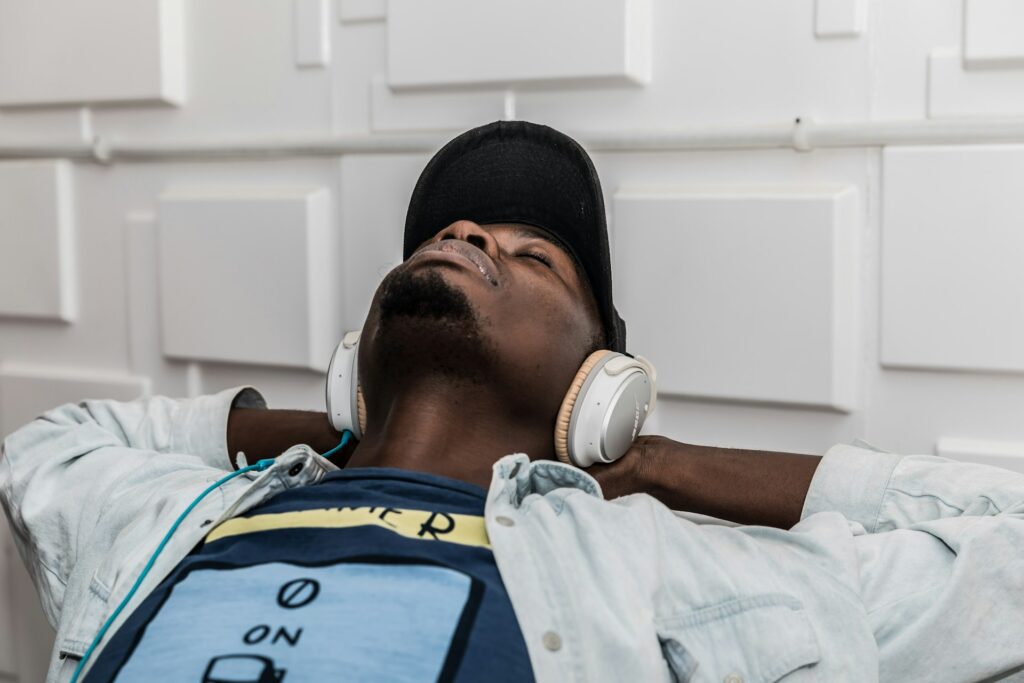When burnout hits, it’s usually tied to work, overwhelm, or doing too much.

However, soul exhaustion is something deeper. It’s not just physical or mental tiredness—it’s an emotional weight that disconnects you from joy, meaning, and even your own sense of self. You can be getting enough sleep, taking breaks, and still feel like something inside you is missing. Here’s how you know you’re dealing with the weariness you’re feeling is soul-deep.
1. You feel tired even after rest.

With burnout, rest can help. A weekend off, a slower pace, or a few good nights of sleep can make a difference. However, with soul exhaustion, even when you sleep, unplug, or say no to things, the heaviness doesn’t lift. It’s not about physical fatigue—it’s about emotional depletion. You wake up tired, not because you didn’t rest, but because what you’re carrying can’t be slept off.
2. You feel emotionally numb, not just overwhelmed.

Burnout often feels like you’re stretched too thin, running on fumes, or anxious from doing too much. Soul exhaustion is quieter. You’re not panicked, you’re checked out. Detached. Flat. You’re not reacting like you used to. You’re not even frustrated anymore. It’s like your emotional volume has been turned all the way down, and you can’t find the switch.
3. You start questioning what the point of everything is.

Soul exhaustion makes you question your sense of direction. You lose touch with the “why” behind your efforts. Even the things you used to care deeply about can start to feel meaningless. This isn’t just about stress—it’s about disconnection. You’re not sure where you belong, what you’re doing, or why it matters. That feeling weighs more than any to-do list ever could.
4. You crave solitude, but it doesn’t restore you.

Burnout can make you long for a break from people or pressure, and when you get that space, you start to feel human again. But soul exhaustion makes you crave solitude and then feel even more isolated once you have it. It’s not that being alone is bad—it just doesn’t bring the peace you were hoping for. You’re searching for something deeper, and quiet time alone can’t fill the gap.
5. You feel detached from yourself.

You might look in the mirror and not feel connected to the person staring back. You might hear yourself laugh and not recognise the sound. There’s a sense of unfamiliarity, like you’ve drifted too far from who you were. This isn’t just tiredness—it’s a kind of emotional fading. You’re still functioning, still doing what needs to be done, but you feel like a hollow version of yourself.
6. You feel like you’ve outgrown your life but don’t know what comes next.

Soul exhaustion often shows up when your life looks okay on the outside, but feels completely disconnected from who you are on the inside. You’ve changed, but your surroundings haven’t caught up. You want something deeper, more aligned, more real, but you’re too drained to figure out what that even looks like. You’re stuck between who you were and who you’re becoming.
7. You don’t feel excited about anything, not even the good stuff.

Even when something objectively positive happens, your emotional response feels muted. There’s no spark, no buzz, no sense of lightness. You’re present, but not really there. It’s not about being ungrateful; it’s about being emotionally spent. Your capacity to feel joy hasn’t vanished, but it’s gone quiet under the weight of everything you’ve been carrying.
8. You feel like you’re faking your way through most conversations.

You can still smile, still show up, still talk about the weather. However, there’s a disconnection underneath it all, like you’re performing instead of participating. Small talk feels exhausting. Deeper conversations feel too vulnerable. So, you stay in that middle zone: polite, agreeable, and quietly disappearing.
9. You fantasise about disappearing—not dramatically, just quietly slipping away.

You don’t want chaos. You don’t want attention. You just want to not be needed, not be watched, not be anyone’s emotional anchor. You imagine stepping away from everything, just to breathe. This isn’t a crisis, it’s a signal. A quiet alarm that your soul is overstimulated, undernourished, and desperate for space to simply exist.
10. You feel deeply lonely, even when you’re not alone.

Being around people doesn’t fix the ache. You could be surrounded by friends, family, or a partner, and still feel like no one really sees you. Soul exhaustion creates a kind of emotional isolation. It’s got nothing to do with being physically alone—it’s about feeling emotionally unreachable, even to the people who care.
11. You’re doing everything “right” but still feel empty.

You’re following the routines, showing up, eating well, maybe even going to therapy, and yet something still feels hollow. You’re not spiralling, but you’re not grounded either. This is often the most confusing part. You’re functioning better than you were before, but it still doesn’t feel like peace. Soul exhaustion has nothing to do with effort—it’s about alignment.
12. You stop letting yourself hope for more.

Burnout makes you want to rest. Soul exhaustion makes you question whether rest will ever be enough. Eventually, you stop reaching for better because it hurts to keep wanting something that feels so far away. This isn’t pessimism—it’s protection. Your soul is tired of disappointment, tired of striving, tired of never arriving. So it goes quiet, just to cope.
13. You long for depth, not just relief.

You’re not looking for a break—you’re looking for meaning. For something that actually feeds you. Temporary distractions or comfort habits don’t scratch the itch anymore. You don’t want to escape. You want to reconnect—with yourself, with something real, with something that makes all the noise worth enduring.
14. You’ve learned how to function while feeling deeply disconnected.

You can still show up, still respond to texts, still meet expectations. But inside, you feel like you’re running on a delayed emotional current—present, but dimmed. This humming version of functioning is easy to miss, especially from the outside. However, it’s a sign your soul is tired—not weak, not broken, just in need of care that runs deeper than rest.


